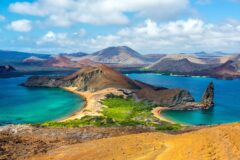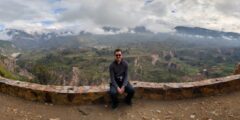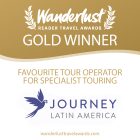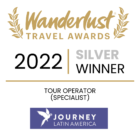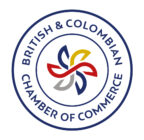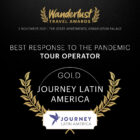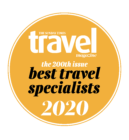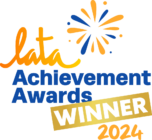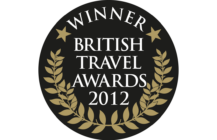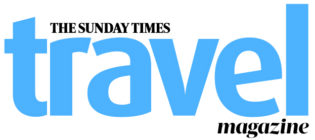Private Journeys
A Taste of Peru
12 days from £4,410pp
(based on two people sharing & excluding flights)
Essentials
-
Tour info
-
Country info
-
What's included
Tour info
Transport
Two flights (approx 1hr); 2 road journeys (5hrs); 2 rail journeys (1.5hrs each).
Accommodation
On this tour we use good quality boutique and first class hotels, all relatively small, friendly establishments, colonial or modern in style with well-equipped rooms, private bathroom and heating.
Meals
Breakfast daily, lunch days 2,7,8. Dinner days 6, 8.
Guides
We carefully select our local partners, some of whom we have worked with for over 25 years. Their English-speaking guides understand the expectations of our clients very well, and are consistently singled out for praise by the latter on their return.
Summary Of Nights
12 days, 11 nights: Lima 2; Ica 2; Sacred Valley 3; Machu Picchu 1; Cusco 3.
Optional Excursions
There are a number of half-, full-day or longer excursions or activities you may wish to consider in order to customise your holiday to cater for your interests. Please contact us to discuss these further or to add them to your itinerary before you depart.
• Flight over Nazca Lines from Pisco.
• Lunch at Wayra Ranch with Peruvian pace horse demonstration.
• Second day visit to Machu Picchu.
• Maras and Moray in the highlands outside Cusco.
Currency
The unit of currency in Peru is the sol.
How To Take It
Cash machines are available in all major cities and towns, and so taking a debit or credit card with a PIN number is the most convenient way of withdrawing money while on your trip, and in most shops and restaurants you can also pay by card. However, since cards can get lost, damaged, withheld or blocked, you should not rely exclusively on a card to access funds.
We recommend that additionally you take a reasonable quantity of US dollars cash (no more than is covered by your insurance), which you can exchange into local currency, and possibly some travellers’ cheques, though these are gradually falling out of use (American Express are the most widely accepted). Dollar bills should be in good condition, soiled or torn bills may be refused. You can take sterling, but the exchange rate is not always competitive or even available, restricting the number of places where you can change money.
Daily Spend
It is very difficult to give a guideline for essential expenses but a budget of around US$45 per day should cover the cost of meals not included in the holiday itinerary, drinks and the odd souvenir. Eat at the best restaurants and you will pay considerably more.
Tipping
Tips are welcomed and local guides often rely on their tip as a significant proportion of their income.
Most service industry workers will expect a tip of some kind and so it is useful to have spare change for hotel porters, taxi drivers and the like. It is common to leave 10 – 12% in restaurants.
Tipping guidelines can be found in our Briefing Dossier.
Insurance
Travel insurance is essential. Details of our recommended policy can be found on our Travel Insurance page.
Airport Taxes
If you have purchased your flights through Journey Latin America, the international departure tax and taxes on internal flights are usually included in the ticket.
Trip Suitability
This holiday is suitable for all able-bodied, reasonably fit visitors, including families. An interest in Peruvian cuisine and drink is advisable. Although there are some early starts, there is also some time at leisure.
The streets in Cusco are cobbled, so make sure you have appropriate footwear.
Climate
Lima is covered in a dull grey mist for much of the year, although the sun does break through between November and March. It almost never rains in Lima, and temperatures are moderate.
In Cusco and the highlands, June to August is the dry season: it can be very cold at night, but days are usually extremely clear with sun. November to March are the wettest months of the year – note that rains tend to be in short, heavy bursts, rather than continual showers, with rains clearing towards the end of April. May, September and October are less predictable, with both rainy and sunny spells.
Nights are cold throughout the year at altitude.
Visas
Holders of a full British passport do not require a visa, although passports must be valid for at least 6 months after the trip begins. Anyone with a different nationality should enquire with us or check with the relevant consulate.
If flying to the US, or via the US you will need to fill in your online ESTA application.
Altitude
Your stay in Cusco and the Sacred Valley is at high altitude (2,800-4,000m). A small minority of visitors may suffer temporarily from altitude sickness. Symptoms vary; most common are mild headaches, slight nausea and breathlessness. If you don’t recover in a day or two speak to our representatives; in very rare instances it is necessary to descend to lower altitudes. Most people are unaffected and if you drink plenty of water and allow your body to acclimatise (don’t exert yourself or drink an excess of alcohol) in the first couple of days after arrival, you will minimise your chances of exhibiting any symptoms.
Please refer to our Briefing Dossier for further information.
Clothing And Special Equipment
For day-to-day wear you should go prepared to encounter all seasons. Both warm clothing and a sun hat are essential at altitude; a light fleece jacket and a Gore-Tex outer shell makes a good combination. Trousers, skirt or shorts made from light, quick-drying synthetic materials work well. If you plan to eat in smart restaurants, although clothing is not formal (no need for jacket and tie), something quite smart would be appropriate.
Strong, comfortable footwear is essential and you should bring insect repellent, sun block and sun glasses. You should take swimwear for the pool in Ica. Due to luggage restrictions on the train to Machu Picchu, main luggage must be left in Cusco. You can take up to 10kgs per person on the train and an overnight holdall is recommended to separate your luggage for the night spent away from Cusco.
Please get in touch with the office before departure if you have any doubts. Good equipment is very important and hard to come by in South America.
Vaccinations
Preventative vaccinations are recommended against the following: typhoid; polio; tetanus; hepatitis A. You should consult your GP for specific requirements.
You can also find helpful information on the Masta Travel Health page.
Country info
When is the best time to visit Peru?
The best time to visit the Andes is April to October, the dry season but at this time it is misty and chilly in Lima. The jungle is an all-year destination, as is Arequipa and the Colca Canyon.
What is Peru's official language?
The official language spoken in Peru is Spanish.
What is Peru's official currency?
The official currency of Peru is the Peruvian Nuevo Sol. Notes in local currency or US dollars can be withdrawn from the many ATMs using a UK credit or debit card. Numerous money exchange offices exchange US dollar cash (few accept euros or sterling and the rate may be poor).
What is the time difference between Peru and the UK?
The time difference between the UK and Peru is GMT-5 hours.
Do I need a visa to travel to Peru?
Holders of a full British passport do not require a visa, although passports must be valid for at least 6 months after the trip begins. Anyone with a different nationality should enquire with us or check with the relevant consulate. If flying to the US, or via the US you will need to fill in your online ESTA application.
What vaccinations are recommended for visiting Peru?
Please check https://travelhealthpro.org.uk/ for information on health recommendations and vaccinations for the destinations you are visiting. Please note that many Latin American countries require proof of vaccination against Yellow Fever if you have recently travelled to another country where Yellow Fever is present.
Which other countries combine well with Peru?
The Galapagos Islands combine well with Peru, as there are flights from Lima connecting through Guayaquil, Ecuador.
What are the festivals, cultural and sporting events in Peru?
Semana Santa (Easter): Many places throughout the country, Mar-Apr variable. Religious processions.
Inti Raymi, Cusco (24 Jun) Theatre and re-enactments of Inca history in the ruins of Sacsayhuamán, the temple fortress overlooking Cusco.
How do I adapt to the altitude in Peru?
Peru's high Andean spine is bookended by the Pacific coast and Amazon Rainforest, with Cuzco at 3,300m. Travel to high altitude can cause mountain sickness and even if you feel fighting fit it’s important to take things easy and stay hydrated (drink plenty of water, avoiding alcohol and caffeine) as you get used to the thin, dry air. You may initially notice a headache, dizziness or breathlessness and this usually improves with acclimatisation. If you are pregnant or taking the contraceptive pill, have a medical condition such as heart or lung condition, anaemia, asthma, high blood pressure you should seek the advice of your GP before booking. We also recommend you check your travel insurance covers travel to high altitude. If you’re taking the family, remember small children may be less capable of communicating altitude-related symptoms effectively: keep an eye on them too. Rest assured we will plan your itinerary carefully, taking into account any time spent at altitude. If you have any questions or concerns about altitude please speak to your travel expert.
Further advice on travel to altitude is available on www.travelhealthpro.org.uk
Inspired by this trip
Our exciting range of articles on Latin America explore everything from iconic destinations and lesser-known cultural gems to delicious traditional recipes. You’ll also find exclusive travel tips, first-hand client reviews and the chance to get your personal questions answered by our travel experts.
Papagaio
Your edit for Latin American inspiration
Our exciting range of articles on Latin America explore everything from iconic destinations and lesser-known cultural gems to delicious traditional recipes. You’ll also find exclusive travel tips, first-hand client reviews and the chance to get your personal questions answered by our travel experts.
View Extraordinary Inspiration